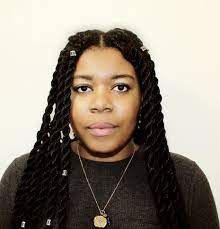
How Can We Dismantle Health Inequity Together? My experience of speaking at the National Voices’ conference.
Sanisha Wynter
- How Can We Dismantle Health Inequity Together?
- Lived experience
- Health inequalities
As the first speaker of the introductory session and the expert by experience, I thought it was pivotal to set the day’s tone by sharing how racial injustice and health inequity have a circular relationship and cannot be addressed in isolation. I wanted to share my personal experiences and barriers when accessing mental health services, and the impact racial bias can have on treatment and recovery. I feel the obstacles are a lack of trust, stigmas, stereotypes, and health services not being tailored to Black people. I also reflected on how the narrative “Strong Black Woman” can be harmful and dismissive when asking for help. I mainly wanted to encourage action and collaboration by the VCSE sector to acknowledge the statistics we are aware of and share tangible learning by sharing the best practice. In the morning session, I was struck by the word cloud created by the attendees, with the question, what comes to mind when you think about racial inequalities in health? Keywords stood out, including unfair, injustice, racism and discrimination. It was clear that we are all aware of the issues. Dr Habib Naqvi, Dr Halima Begum and I called for action through collaboration, intentional engagement with minoritised communities, the sharing of resources, and introduced the NHS Race and Health Observatory work.
The afternoon sessions validated the themes highlighted in the introductory session, reinforced examples of critical challenges, and shared examples of how their organisations led initiatives to tackle inequalities. The first-afternoon session focused on partnership working. A key takeaway for me challenged us not to look at health inequity from the lens of homogenous groups but instead concentrate on a granular level by remembering intersectionality. The day’s final session addressed organising with members and people with lived experience to dismantle racism actively; Youth Access shared their knowledge of creating a movement that moves by creating brave spaces instead of safe spaces.
The conference has empowered me that with the knowledge that the conversations are going in the right direction, organisations are assessing their staff and board diversity and representation and are thinking about how resources could be better utilised with communities and experts by experience. It is not good enough to say communities are hard to reach, instead we must reflect on how we are accessing them. I feel hopeful that there will be a change in the disparity of statistics and experiences as long as we build on the momentum, taking forward the lessons learnt and working together.